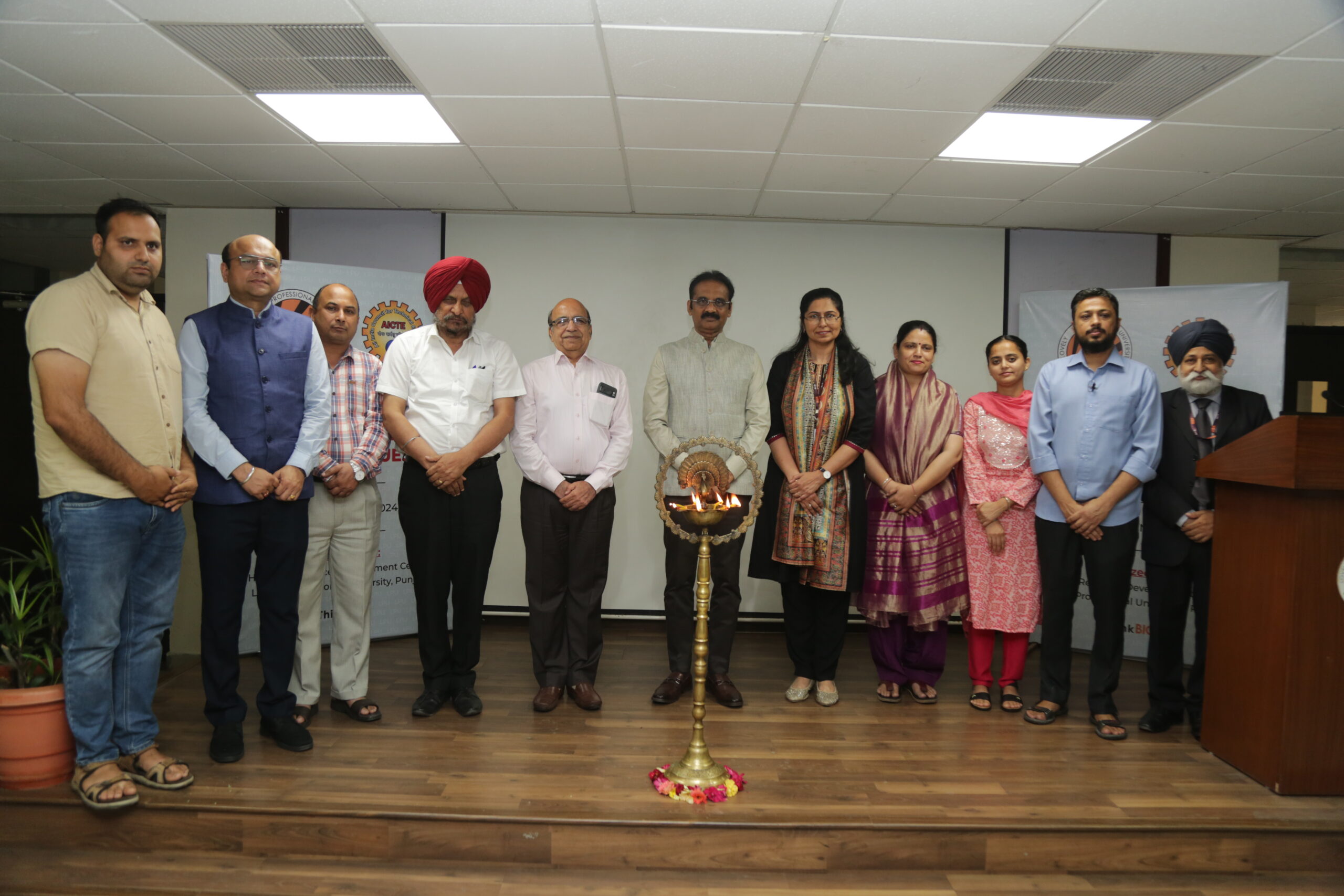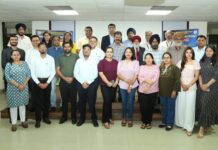The introductory Faculty Development Program (FDP) on Universal Human Values, was organized by LPU HRDC in association with AICTE, from May 16-18, 2024, wherein 60+ faculty members participated. Founder Chancellor of LPU, and member of Rajya Sabha Honourable Dr. Ashok Kumar Mittal was the chief guest. In his inaugural address he gave a call to action for leading a harmonious life, honouring the trust of all stakeholders and contributing towards sustainable development for realizing the vision of Viksit Bharat by 2047. His wisdom and leadership profoundly influenced all the participants’ journey towards promoting ethical values in education and society.
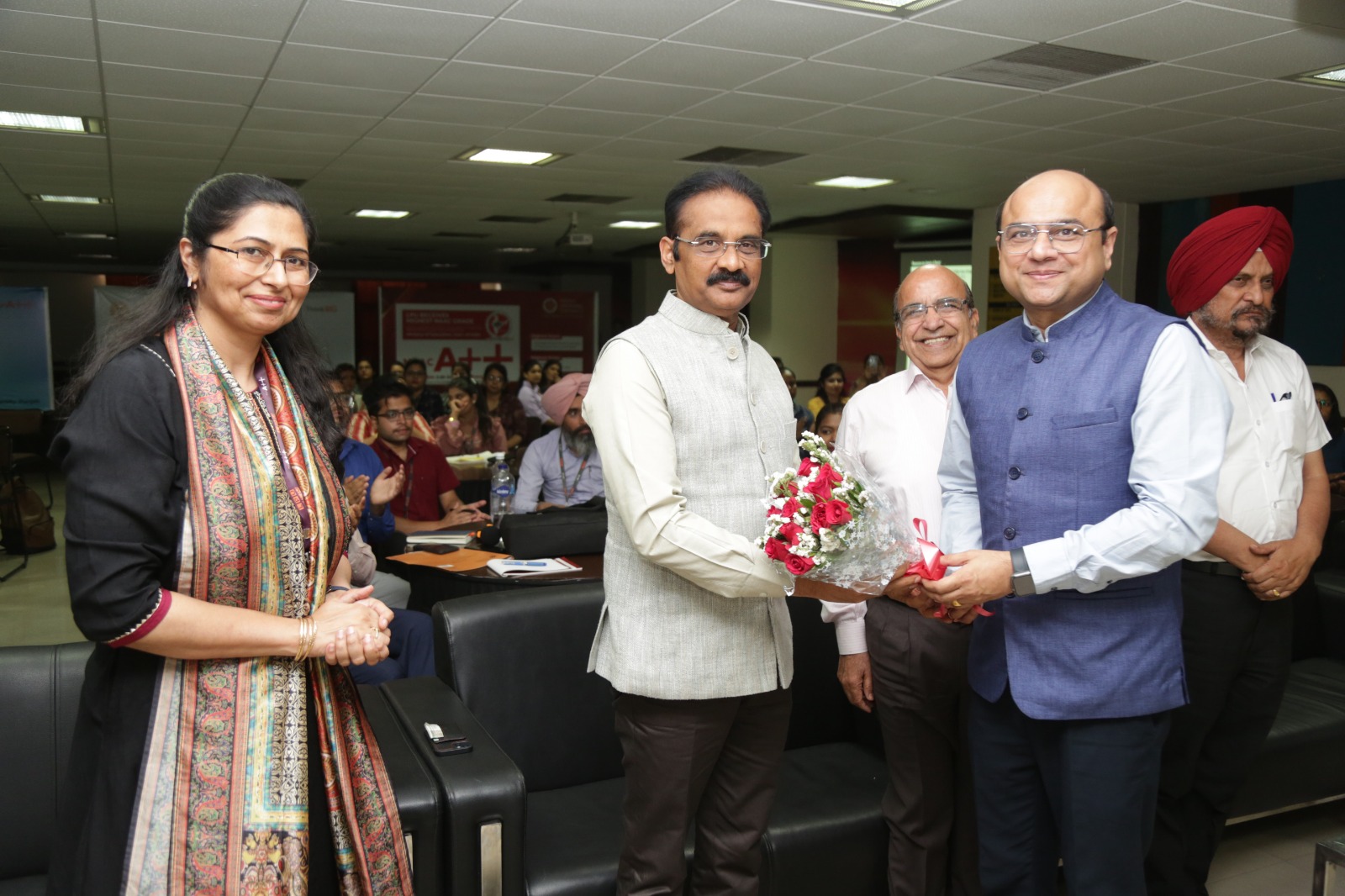
Honouring Ceremony of Chief Guest Dr. Ashok Kumar Mittal, Chancellor, LPU and Member of Rajya Sabha
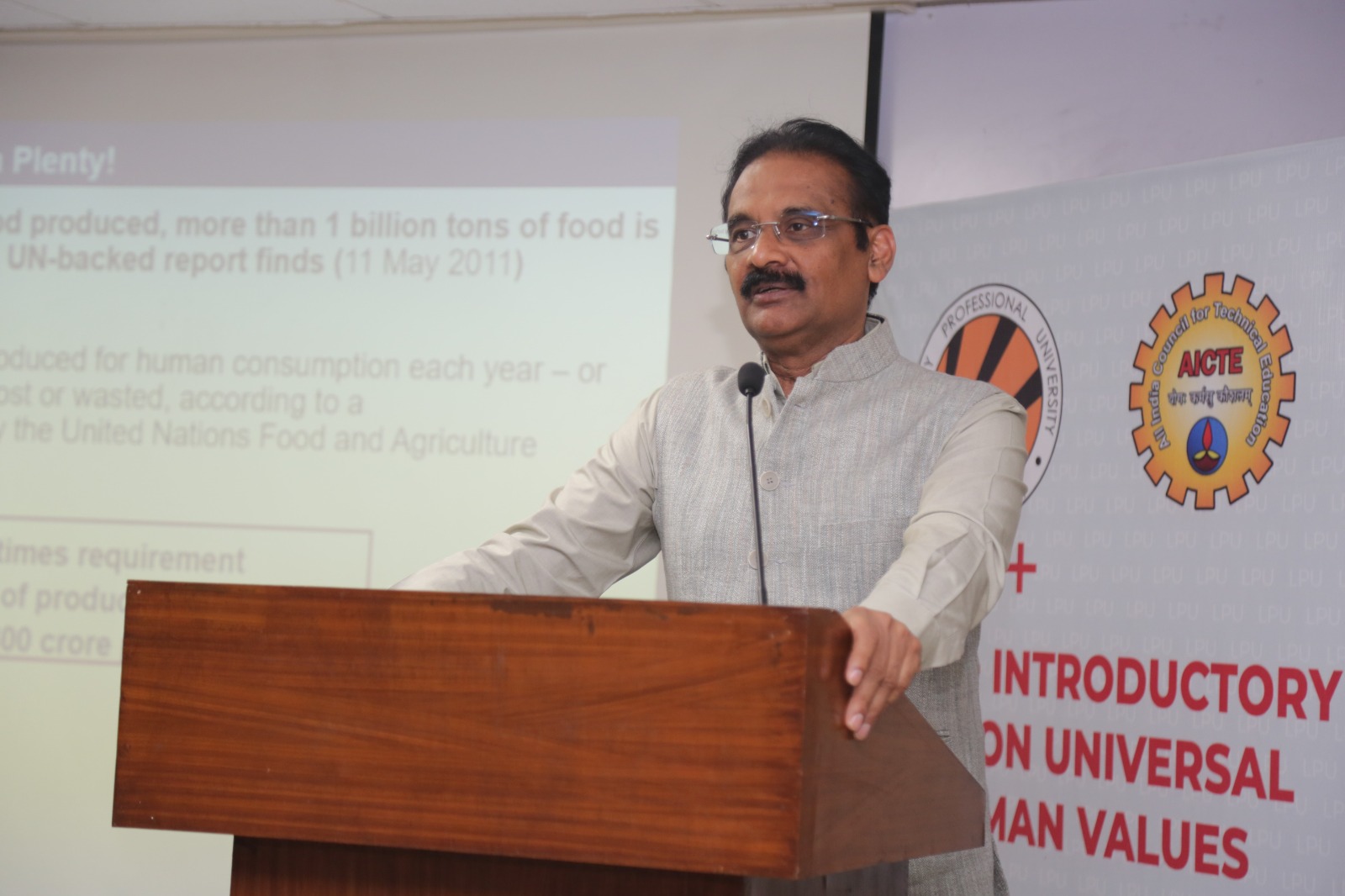
Inaugural address by Dr. Ashok Kumar Mittal Chancellor LPU and Member of Rajya Sabha
The FDP was graced by the presence of Dr. Rajneesh Arora, Chairman of NCCIP, AICTE, as the Guest of Honour, Dr. Rajneesh Arora addressed the crucial topic of integrating universal human values into technical education. Emphasizing the importance of ethical principles and social responsibility, Dr. Arora highlighted how these elements are essential in engineering and technical curricula. He mentioned by embedding these values, educational institutions can cultivate not only skilled professionals but also responsible and ethical individuals. The session highlighted the transformative potential of value-based education in shaping students’ personal and professional lives.
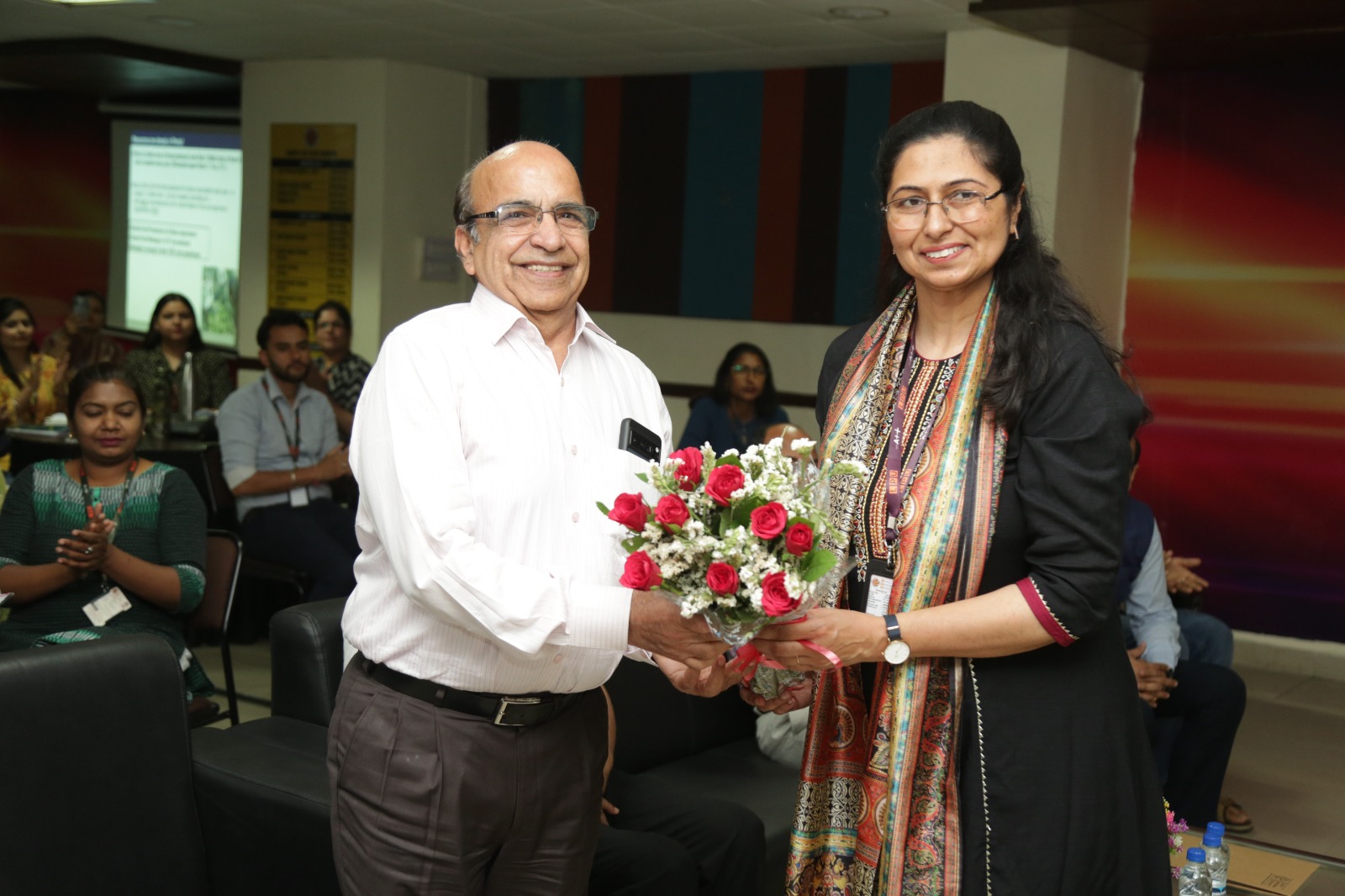
Felicitation Ceremony of Dr. Rajneesh Arora, Chairman of NCCIP, AICTE
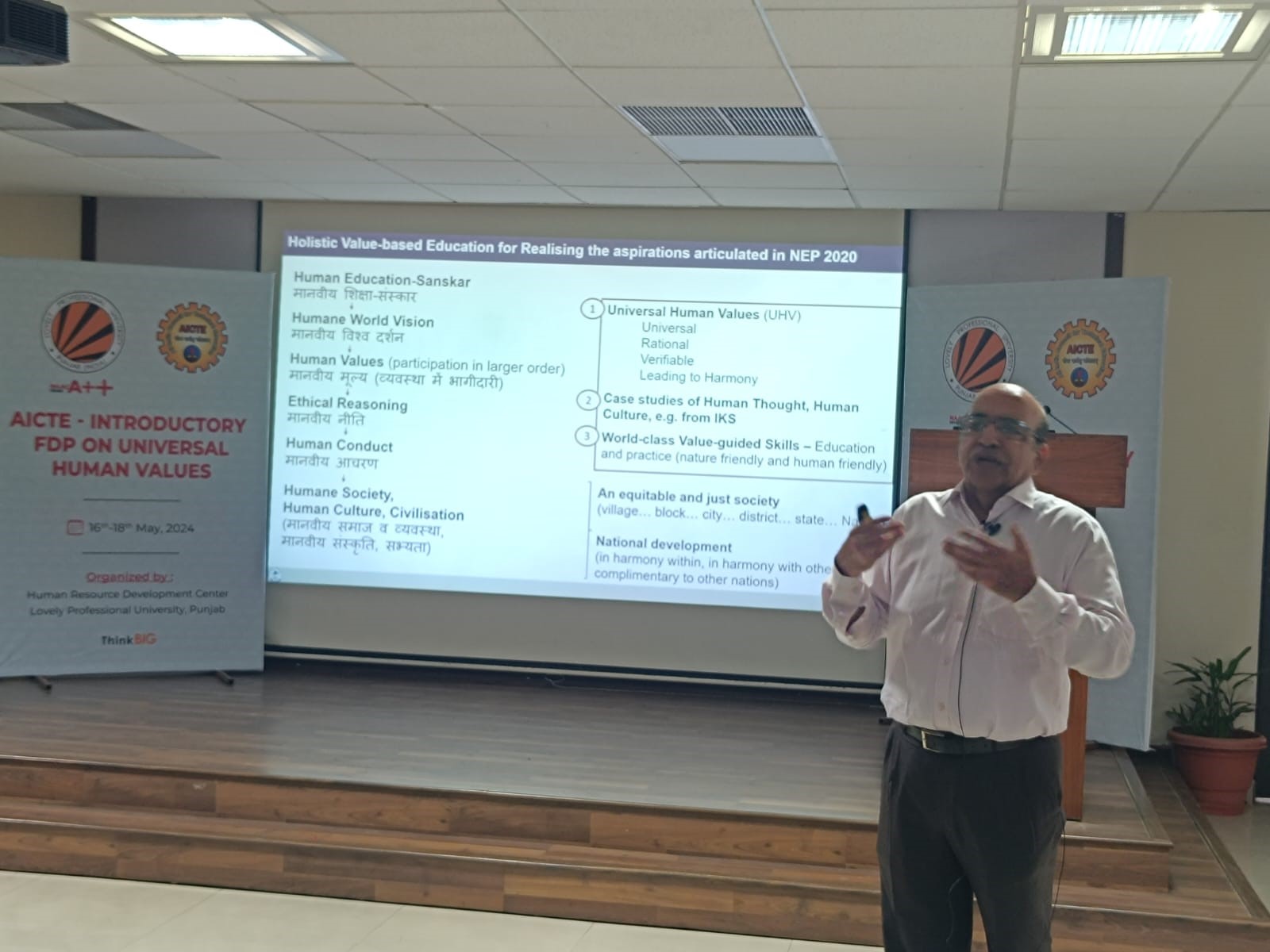
Dr. Rajneesh Arora deliberating on integrating universal human values
Dr. Dharamjit Singh Parmar, Vice Chancellor of Sant Baba Bhag Singh University was a special invitee. He provided valuable insights on integrating universal human values into our teaching and research.
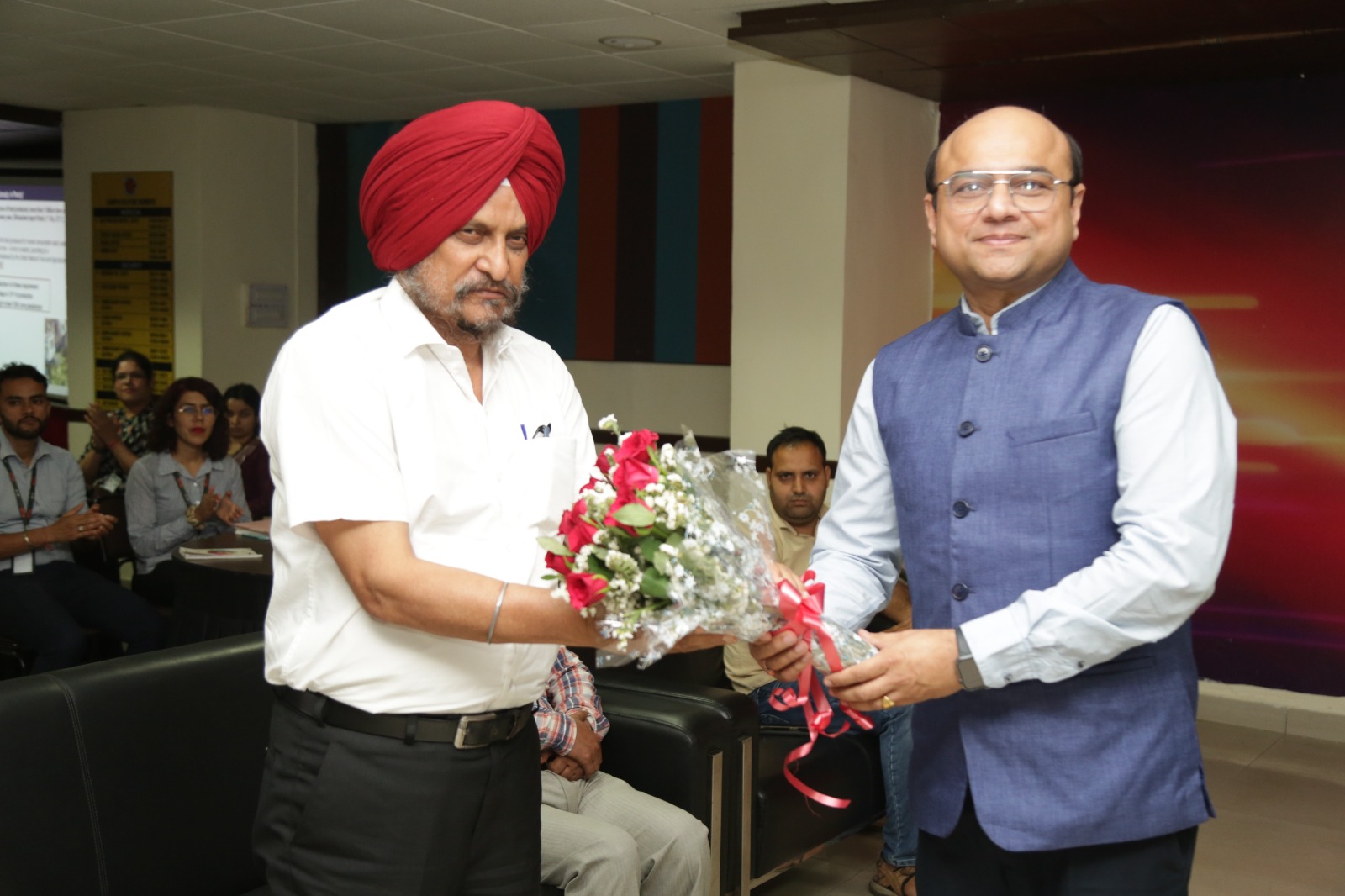
Felicitation Ceremony of Dr. Dharamjit Singh Parmar, Vice Chancellor of Sant Baba Bhag Singh University
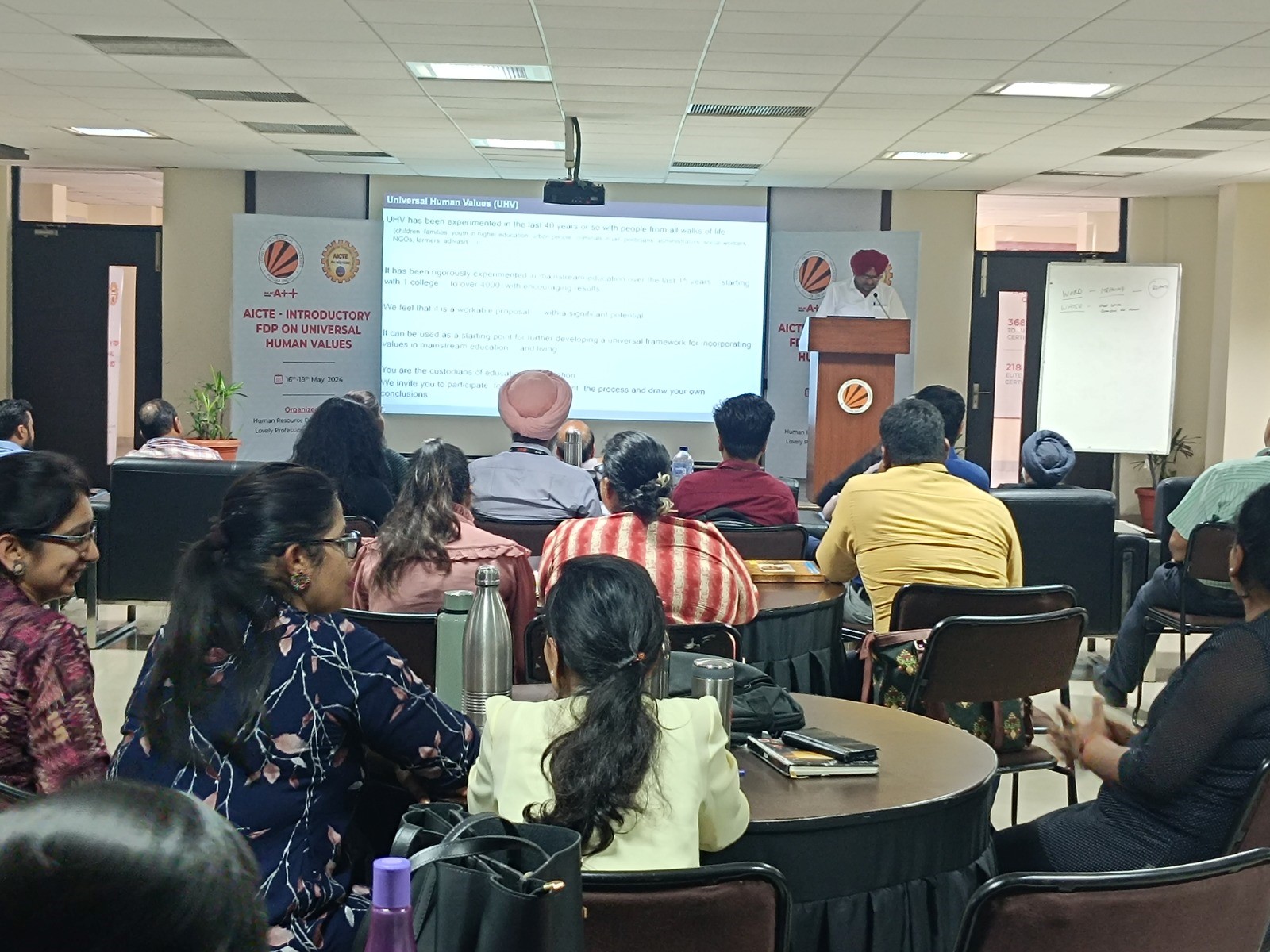
Dr. Dharamjit Singh Parmar addressing the participants
The program was conducted by AICTE nominated Resource Team : Sh. Jitender Narula, Smt. Rajneet Kaur, Co-facilitator and Ms. Mangaldeep Urvashi Sharma, Observer.The team highlighted the pivotal role of teachers in imparting Human Values, practical strategies for integrating the same in the curriculum as per NEP 2020 thus leaving educators empowered to shape the next generation with strong ethical foundations. Day wise key highlights of the program are mentioned below:
Session 1: Holistic Development and Role of Education
This session focused on the concept of holistic development and the pivotal role of education in fostering a well-rounded individual. Sh. Jitender Narula discussed the integration of academic knowledge with moral and ethical values, emphasizing the need for education systems to nurture physical, emotional, and intellectual growth. Key points included the importance of a balanced curriculum that promotes critical thinking, creativity, and personal well-being.
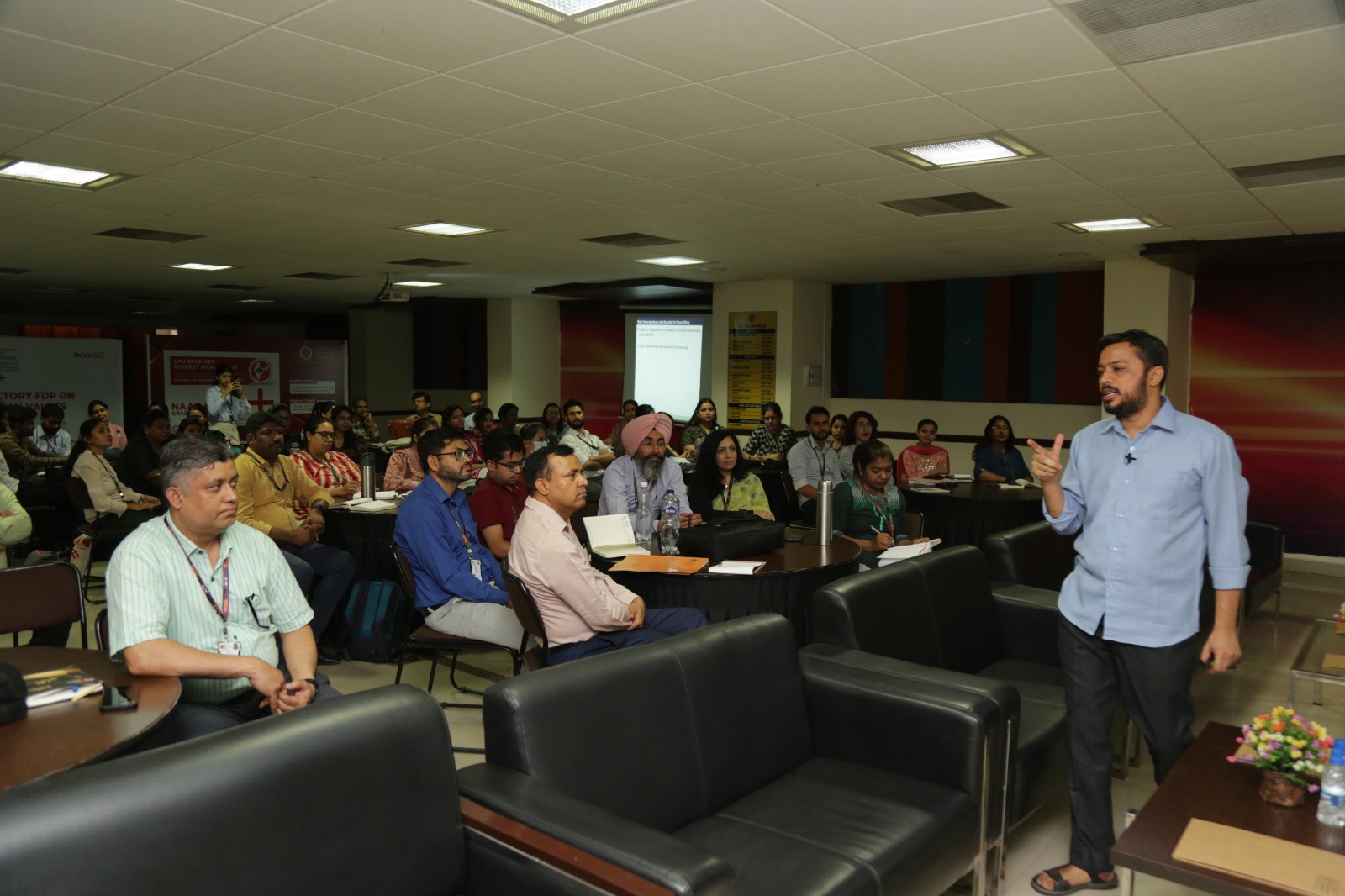
Sh. Jatinder Narula, focusing on Holistic Development and Role of Education
Session 2: Self- Exploration, Happiness, Prosperity
This session explored the themes of self-exploration, happiness, and prosperity, highlighting their interconnections. The speakers emphasized the role of self-awareness and mindfulness in achieving true happiness and prosperity. Techniques for self-reflection and personal growth were shared, aiming to help participants, cultivate a fulfilling and balanced life. Sh. Narula discussed the philosophical underpinnings of happiness and prosperity. Smt. Rajneet Kaur provided insights into practical self-exploration exercises and highlighted the impact of positive thinking on overall well-being.
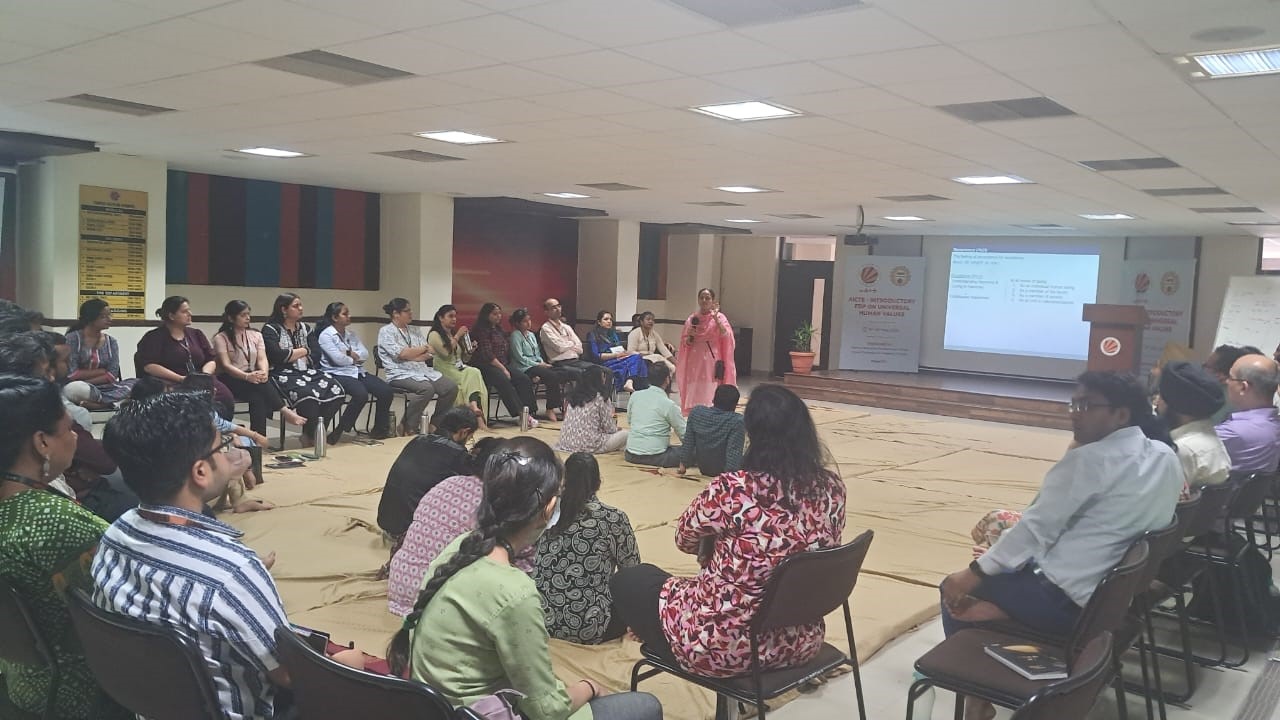
Smt. Rajneet Kaur- Self- Exploration, Happiness, Prosperity
Session 3: Harmony in Human Being, Story of Stuff
The session on ‘Harmony in Human Being’ delved into the intricate balance required for an individual to achieve personal well-being and fulfilment. It emphasized understanding the interconnections between physical health, mental clarity, emotional stability, and spiritual growth. By exploring the ‘Story of Stuff,’ the discussion highlighted how material consumption impacts personal harmony. The narrative showed how overconsumption and materialism can lead to stress, discontent, and environmental degradation. The session concluded with a call for mindful living, advocating for a minimalist lifestyle that prioritizes essential needs and fosters sustainable practices.
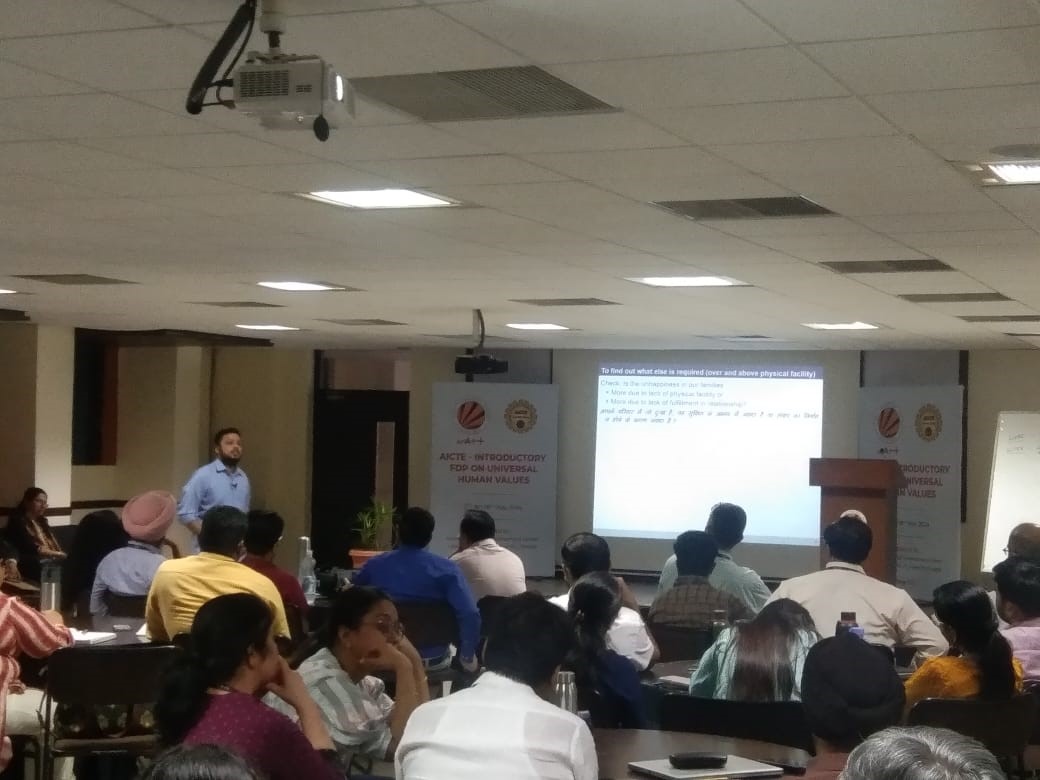
Sh. Jatinder Narula – Harmony in Human Being, Story of Stuff
Session 4: Harmony in the Self
In his session on ‘Harmony in the Self,’ Sh. Jitender Narula guided participants through a deep introspection of their inner worlds. He discussed the importance of self-awareness and the alignment of one’s thoughts, emotions, and actions. Narula emphasized the role of self-discipline, meditation, and continuous self-improvement as tools to achieve inner harmony. He presented practical exercises to help individuals connect with their inner selves, understand their desires and motivations, and cultivate a state of inner peace and contentment.
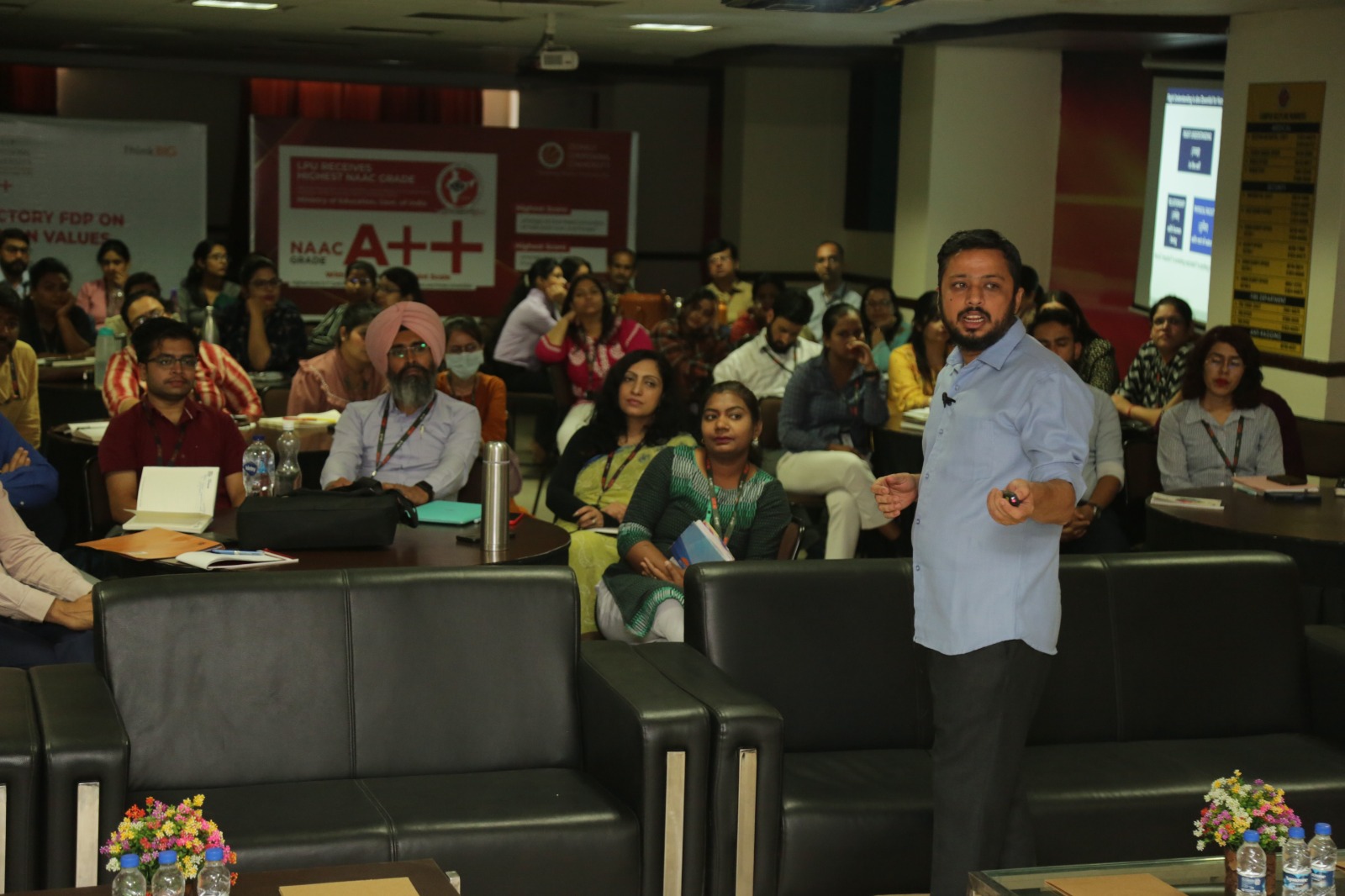
Sh. Jatinder Narula guiding the participants on Harmony in the Self
Day2
Session 1: Recap of Day 1, Prosperity-Health, Harmony in the Family- Trust
On the second day, Sh. Jitender Narula recapped the key points from Day 1, reinforcing the principles of inner harmony and sustainable living. He then transitioned to discussing “Prosperity-Health,” illustrating the connection between a prosperous life and good health. Narula explained that true prosperity is not just material wealth but also includes mental and physical well-being. He also covered ‘Harmony in the Family-Trust,’ where he stressed the importance of trust as the foundation of family relationships. By building trust through honesty, transparency, and mutual respect, families can create a nurturing and supportive environment.
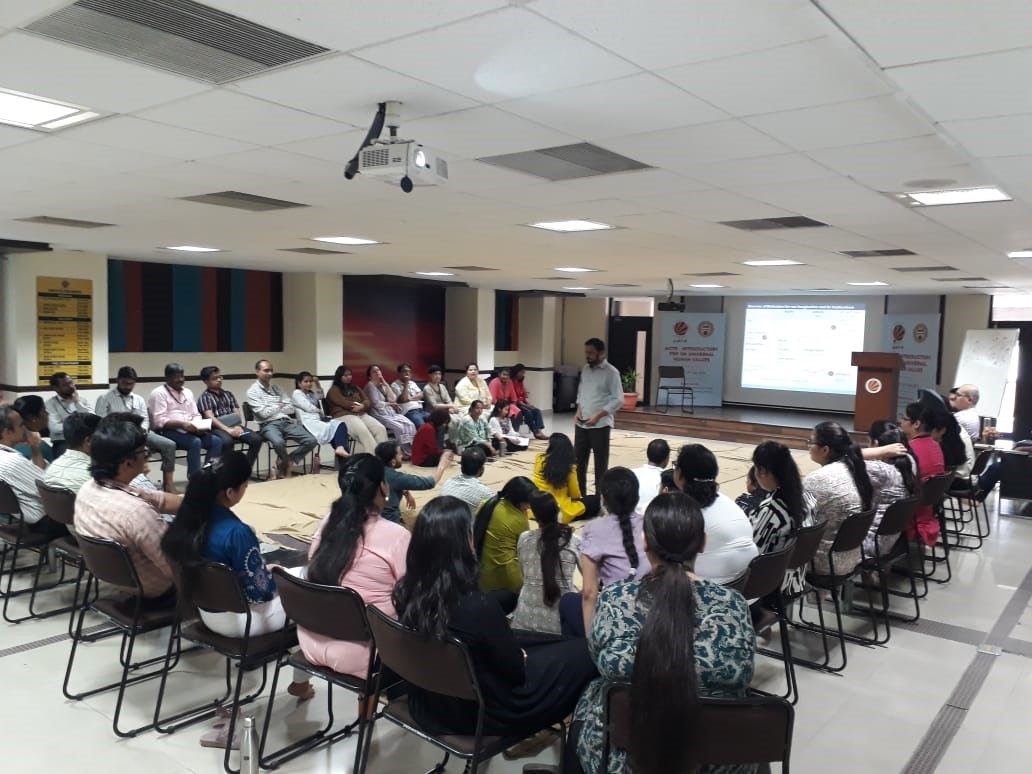
Sh. Jatinder Narula – Prosperity-Health, Harmony in the Family- Trust
Session 2: Harmony in the Family-Respect
Continuing from his previous discussion on trust, Sh. Jitender Narula elaborated on ‘Harmony in the Family-Respect’. He argued that respect is essential for fostering healthy family dynamics and is closely linked to trust. Respect involves recognizing and valuing each family member’s individuality and contributions.
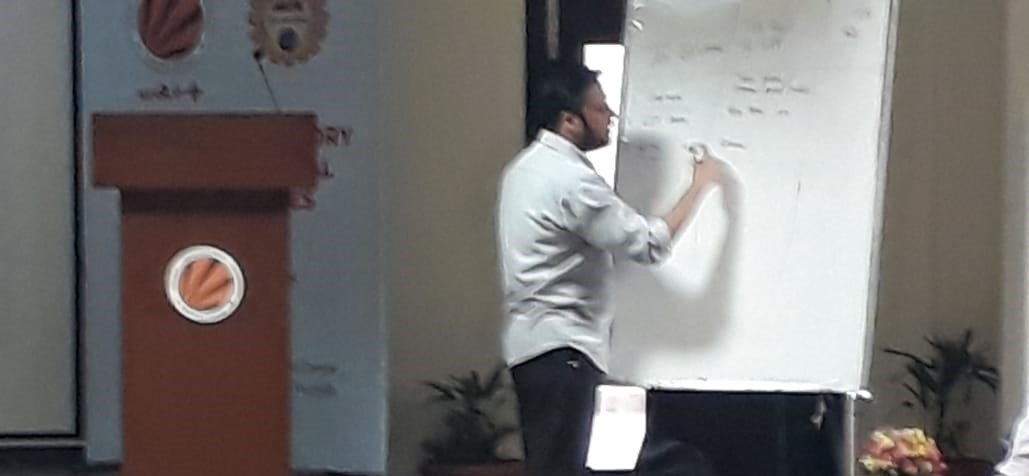
Sh. Jitender Narula elaborating on ‘Harmony in the Family-Respect’
Session 3: Harmony in the Family-Other Feelings
Mr. Narula also explored ‘Harmony in the Family-Other Feelings,’ addressing the management of various emotions such as love, empathy, anger, and forgiveness within the family context. He provided strategies to deal with conflicts and maintain emotional equilibrium, ensuring a harmonious family life.
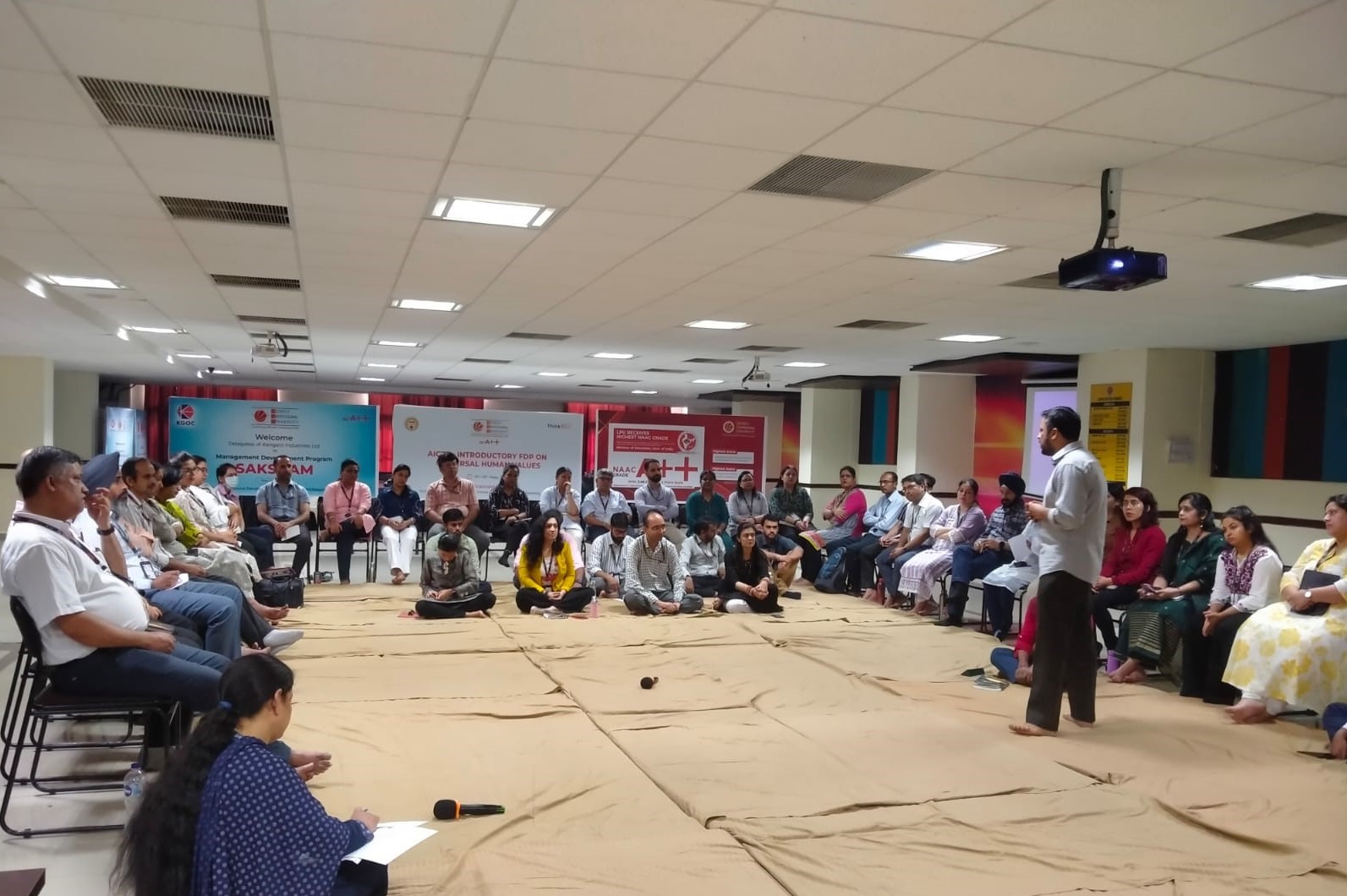
Sh. Jatinder Narula – Harmony in the Family-Other Feelings
Day 3
Session 1: Harmony in Society
In the session on “Harmony in Society,” Sh. Jitender Narula broadened the scope from the individual and family to the larger community. He discussed the principles of social harmony, which include justice, equity, and mutual respect. Narula emphasized the importance of active participation in community life and the role of social institutions in fostering a cohesive and inclusive society. He also touched on the impact of social harmony on reducing crime, enhancing cooperation, and promoting overall societal well-being.
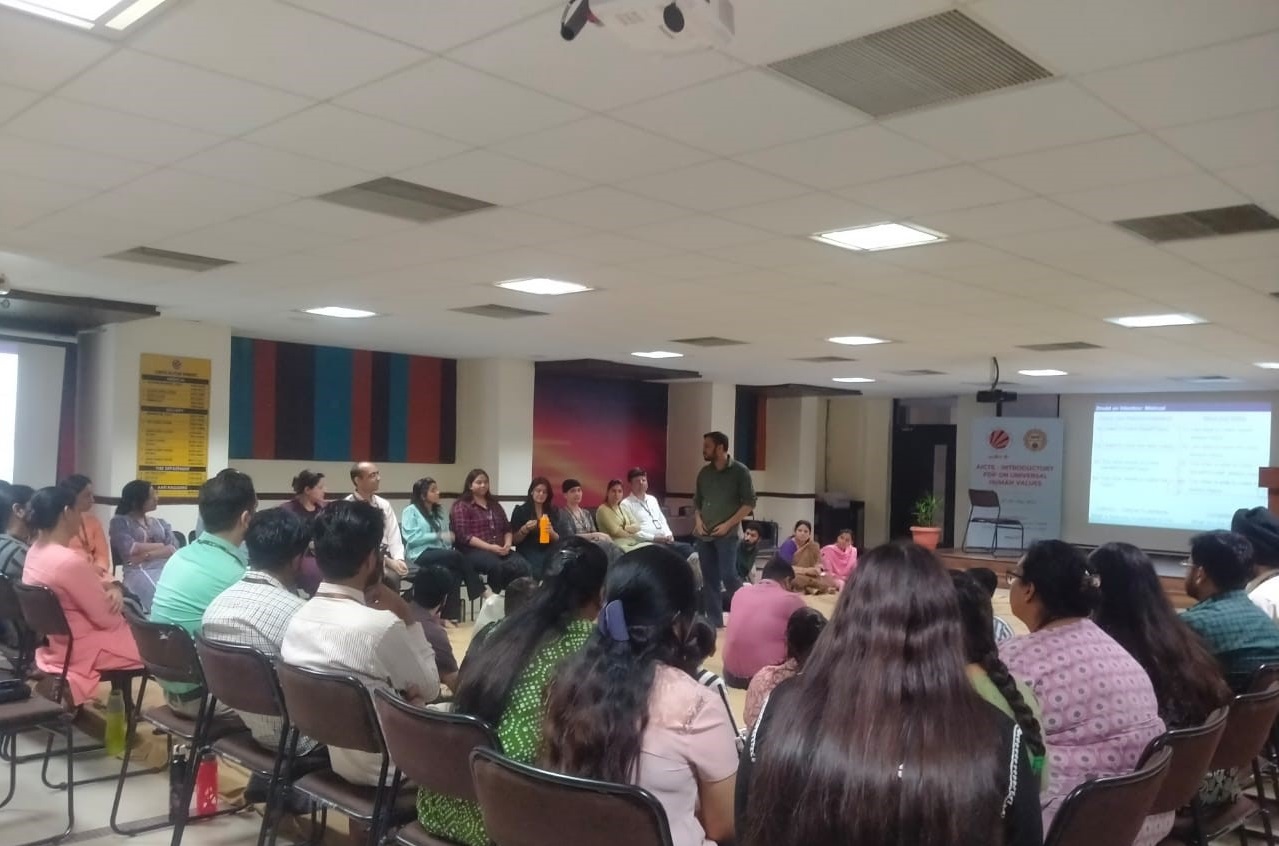
Sh. Jitender Narula broadening the scope of Harmony in Society
Session 2: Harmony in Nature
Sh. Jitender Narula’s session on “Harmony in Nature” focused on the vital relationship between humans and the natural environment. He highlighted the necessity of living in balance with nature, advocating for sustainable practices that protect and preserve natural resources. Narula discussed the concept of ecological balance and the repercussions of human actions on the environment. He encouraged participants to adopt eco-friendly habits, support conservation efforts, and promote environmental stewardship as part of their daily lives.
Smt. Rajneet Kaur provided practical guidance on how individuals and communities can adopt more environmentally friendly lifestyles. She emphasized the role of education in promoting environmental stewardship and the importance of integrating sustainability into everyday activities. She shared inspiring case studies of communities that have successfully implemented sustainable practices, illustrating the tangible benefits of living in harmony with nature.
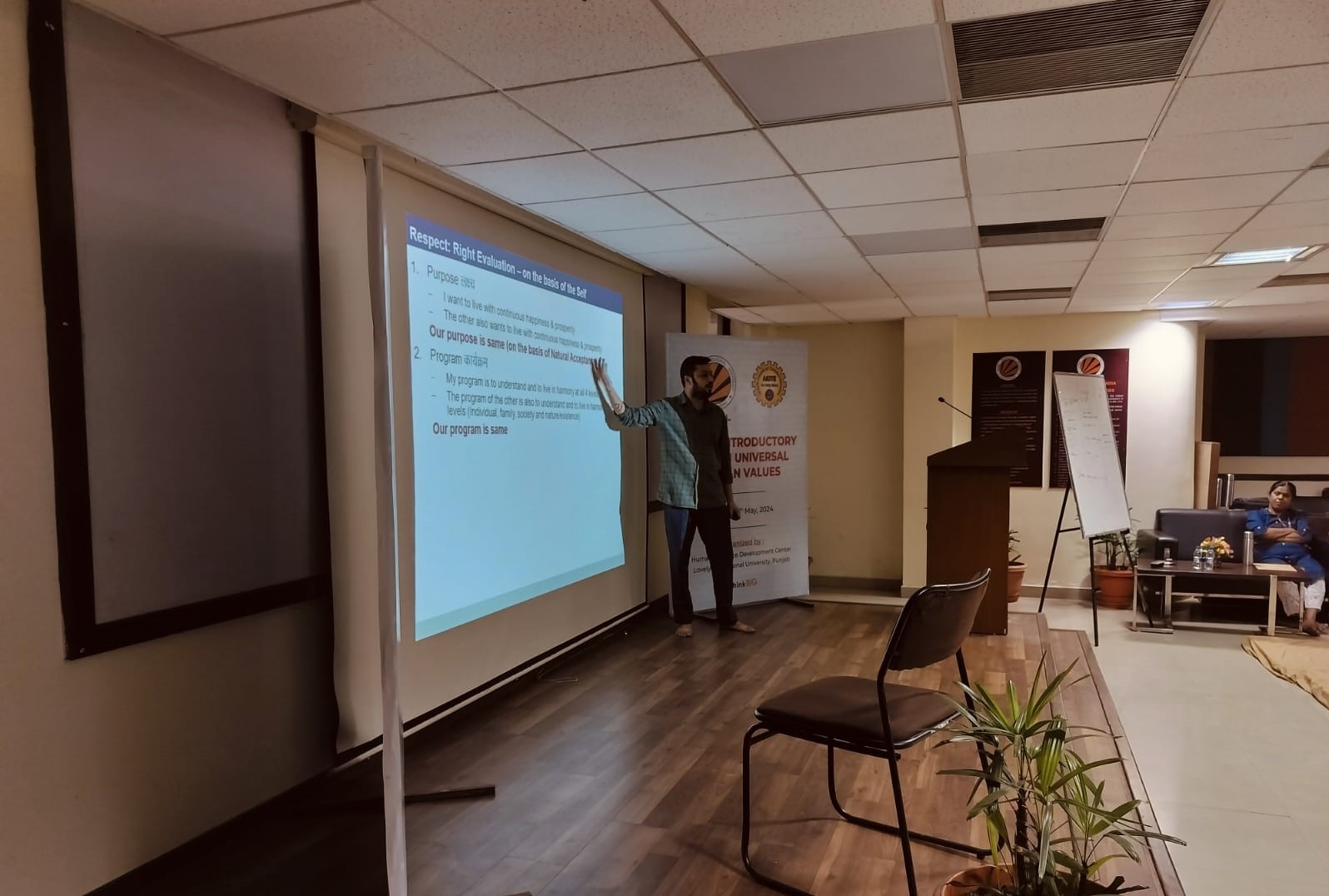
Sh. Jatinder Narula explaining about Harmony in nature
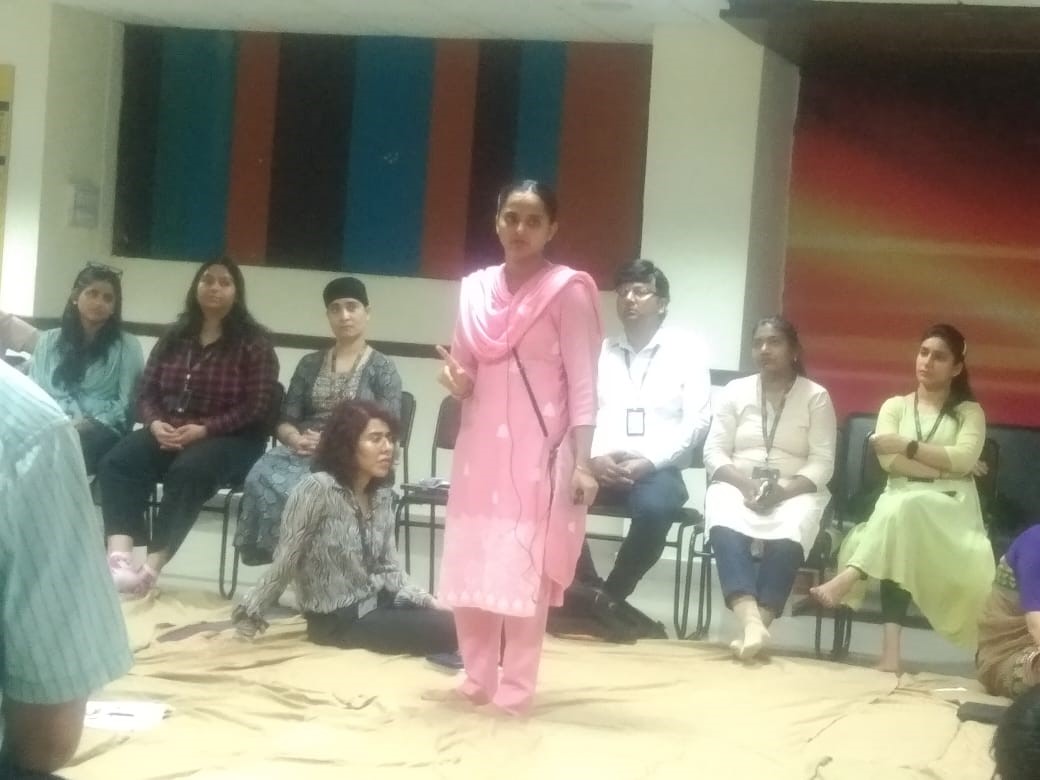
Smt Rajneet Kaur, emphasizing the role of education in promoting environmental stewardship
Session 3: Harmony in Existence
In the concluding session, ‘Harmony in Existence,’ Sh. Jitender Narula integrated all the themes discussed throughout the program. He explained the interconnectedness of personal, familial, social, and environmental harmony, and how they contribute to the broader concept of universal harmony. Narula emphasized the holistic approach to living harmoniously in all aspects of life. He summed up by encouraging participants to apply the principles learned in their daily lives, fostering a balanced existence that contributes to their well-being and the well-being of the world around them.
Program was a comprehensive and reflective day that built upon the previous days’ discussions, emphasizing the interconnectedness of personal, social, and environmental harmony. The sessions provided a deep dive into practical and philosophical aspects of living harmoniously with oneself, society, and nature. The day concluded with a thorough self-evaluation and feedback process, ensuring that participants left with a clear understanding of their learning journey and actionable insights to apply in their personal and professional lives. Overall, the program succeeded in its goal of nurturing well-rounded individuals equipped with the knowledge and values to contribute positively to society and the environment.
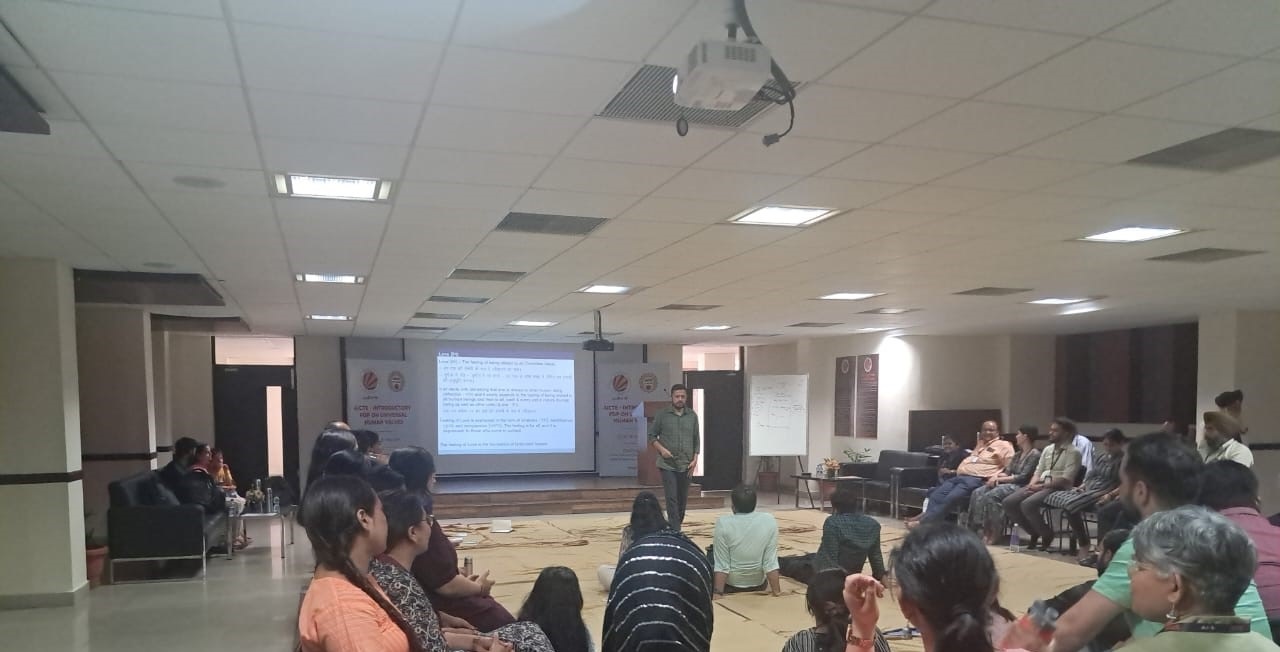
Sh. Jatinder Narula emphasizing the holistic approach to living harmoniously in all aspects of life
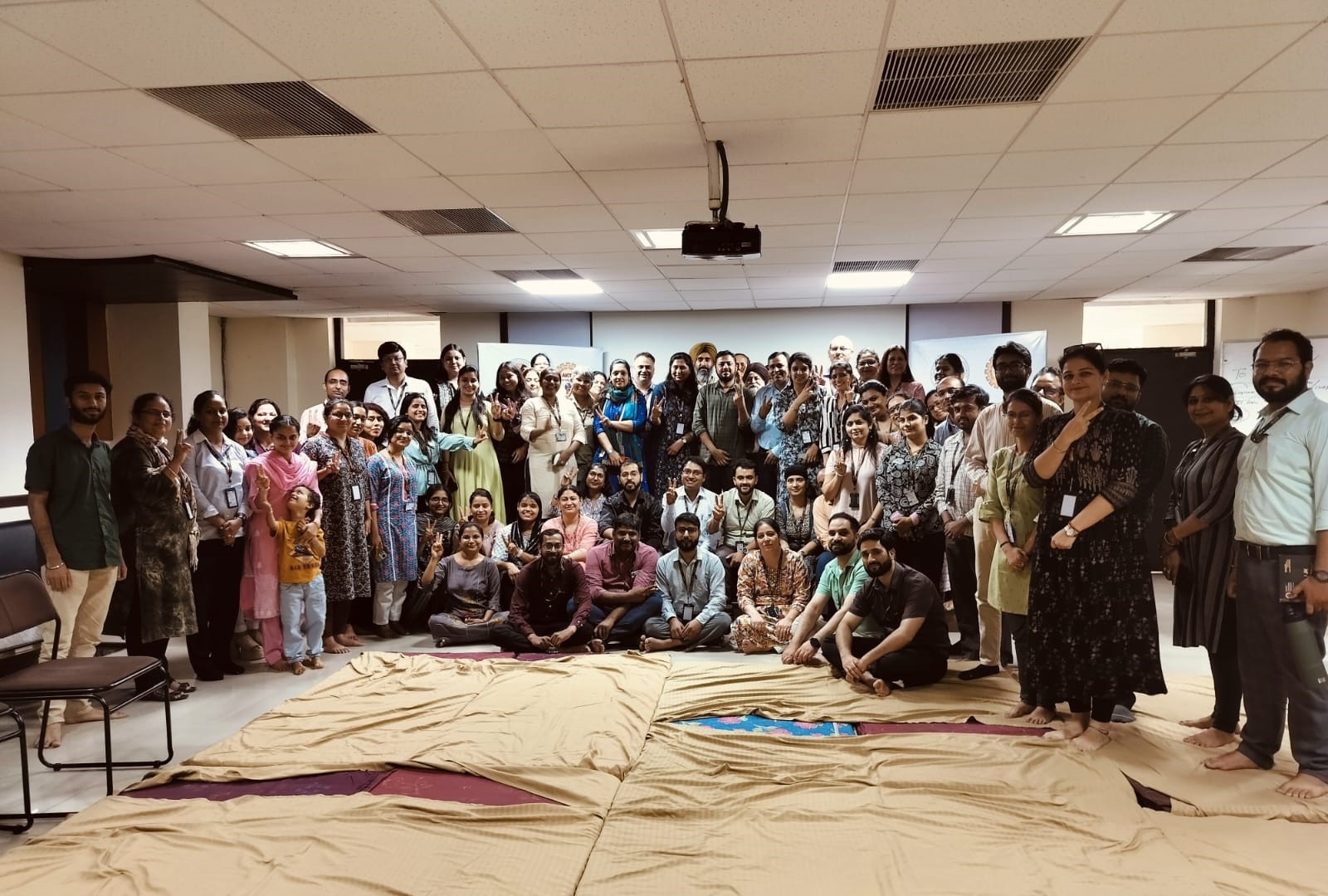
Group Photograph, AICTE


